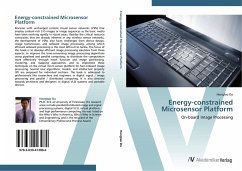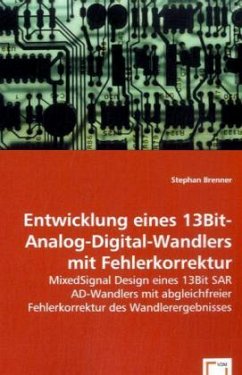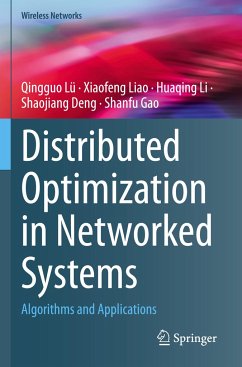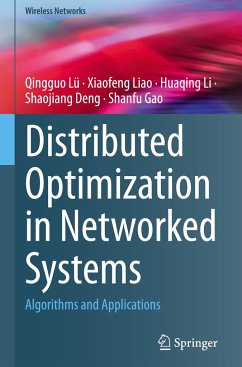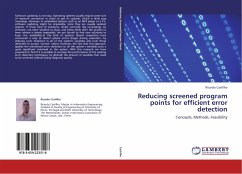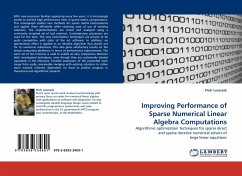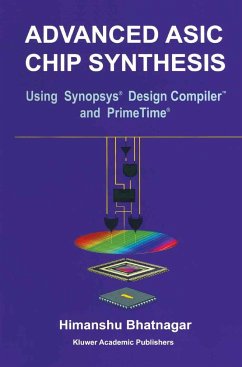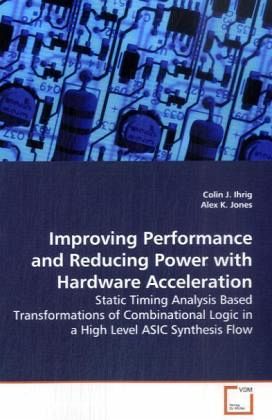
Improving Performance and Reducing Power with Hardware Acceleration
Static Timing Analysis Based Transformations of Combinational Logic in a High Level ASIC Synthesis Flow
Versandkostenfrei!
Versandfertig in 6-10 Tagen
32,99 €
inkl. MwSt.

PAYBACK Punkte
16 °P sammeln!
Modern electronic design automation tools can be used to apply a variety of transformations to hardware blocks in an effort to achieve performance and power savings. A number of such transformations require tools with intimate knowledge of the design's timing characteristics. Static timing analysis estimates the worst-case timing behavior of hardware data flow graphs. The static timing analyzer described in this book operates on data flow graphs which are generated as intermediate representations within a C to VHDL hardware acceleration compiler. Two additional tools were then developed which ...
Modern electronic design automation tools can be
used to apply a variety of transformations to
hardware blocks in an effort to achieve performance
and power savings. A number of such transformations
require tools with intimate knowledge of the
design's timing characteristics. Static timing
analysis estimates the worst-case timing behavior of
hardware data flow graphs. The static timing
analyzer described in this book operates on
data flow graphs which are generated as intermediate
representations within a C to VHDL hardware
acceleration compiler. Two additional tools were
then developed which utilize the results of the
static timing analysis. An automated pipelining
tool was developed to increase the throughput of
large blocks of combinational logic generated by the
compiler. Another tool was designed to mitigate
power consumption resulting from combinational
glitching. By inserting special signal buffers with
preselected propagation delays, known as delay
elements, functional units can be kept inactive
until their inputs stabilize. This book explores
these tools as well as the various design tradeoffs
resulting from their use.
used to apply a variety of transformations to
hardware blocks in an effort to achieve performance
and power savings. A number of such transformations
require tools with intimate knowledge of the
design's timing characteristics. Static timing
analysis estimates the worst-case timing behavior of
hardware data flow graphs. The static timing
analyzer described in this book operates on
data flow graphs which are generated as intermediate
representations within a C to VHDL hardware
acceleration compiler. Two additional tools were
then developed which utilize the results of the
static timing analysis. An automated pipelining
tool was developed to increase the throughput of
large blocks of combinational logic generated by the
compiler. Another tool was designed to mitigate
power consumption resulting from combinational
glitching. By inserting special signal buffers with
preselected propagation delays, known as delay
elements, functional units can be kept inactive
until their inputs stabilize. This book explores
these tools as well as the various design tradeoffs
resulting from their use.




